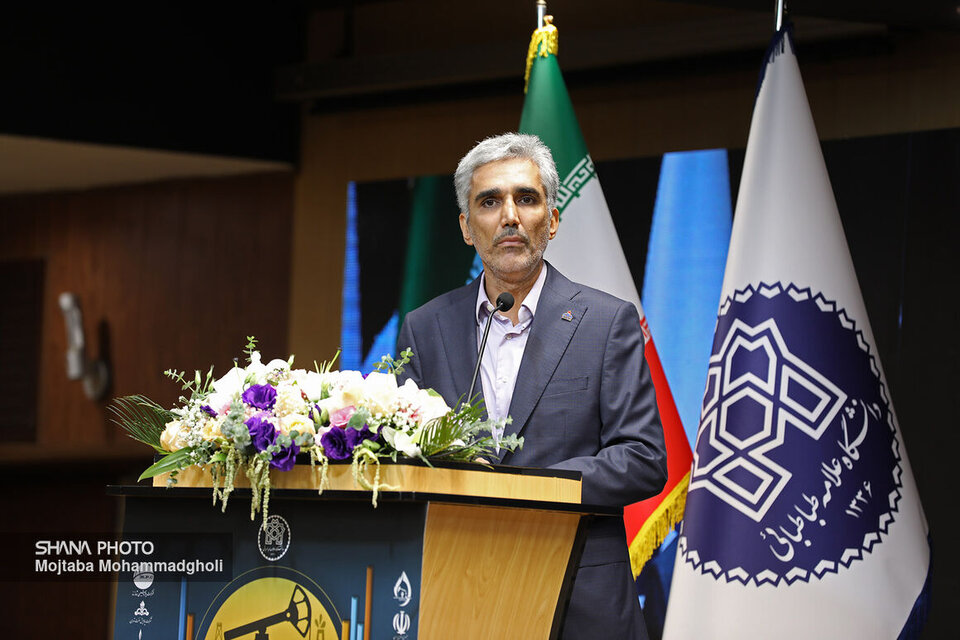Amir Moqiseh said Monday at the International Conference on Investment and Financing in the Oil, Gas and Petrochemical Industries that oil remains the backbone of Iran’s economy and national security. “Unfortunately, its life span is ending sooner than we expected,” he said. “Based on international estimates, the oil era will end within the next three to four decades.”
He added that if current trends continue, about 70% of Iran’s remaining oil and 80% of its gas reserves will stay underground and never be produced. “If we do not act now, future generations will lose their chance to benefit from this wealth,” he said.
Lagging Behind Global Energy Developments
Moqiseh compared Iran’s current position to that of regional peers. “There was a time when the NIOC logo inspired pride and envy among oil-producing nations,” he said. “Today, our distance from major energy players like Aramco and ADNOC has widened.”
He noted that Saudi Aramco raised more than $25 billion by offering just 5% of its shares on international stock exchanges, while the Saudi government guaranteed $75 billion in annual dividends to shareholders. “While global energy giants have diversified their financing and investment strategies, we remain trapped in complex structures and restrictive bureaucracy,” he said.
Citing Central Bank of Iran data, Moqiseh said more than $170 billion left Iran between 2005 and 2020, and another $12 billion left in the first half of 2023 alone. “Liquidity in the country has surpassed 11 quadrillion tomans, yet these resources are not being channeled into productive investments,” he said.
Oil Managers Under Oversight of 13 Agencies
Moqiseh stressed that the problem is not a lack of money but a lack of trust. “The government and lawmakers must create transparent and reliable mechanisms to encourage public participation in national projects,” he said, adding that universities and development institutions should play a role in guaranteeing and validating investments.
He pointed to the heavy oversight burden on oil managers. “Today, the performance of oil executives is reviewed by 13 supervisory bodies,” he said. “In such an environment, managers cannot make bold decisions. They are more concerned with satisfying oversight agencies than with pursuing the national interest. No major company like Aramco, ADNOC or Total operates under such pressure.”
“If we want Iran’s oil and gas industry to regain its driving role, we must change this course,” Moqiseh said. “Parliament, the government and oversight bodies must recognize that little time remains to correct the path. We cannot allow our national resources to stay buried while historic opportunities slip away. If we fail to act today, tomorrow will be too late. With unity and a change in mindset, we can rebuild public trust and restore the oil industry to its rightful place.”


Your Comment